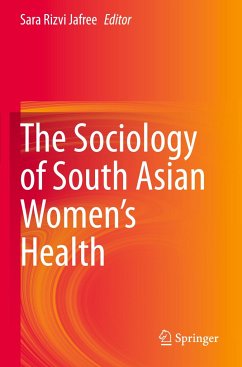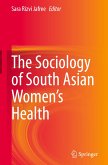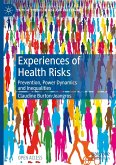This contributed volume is the first-known collection of essays that brings together scholarly review, critiques, and primary and secondary data to assess how sociocultural factors influence health behavior in South Asian women. The essays are authored by working scholars or healthcare practitioners from Bangladesh, India, and Pakistan. In the chapters, the contributors acknowledge social, economic, and environmental factors to recommend improved interventions and health policy for women of the region.
Studies on South Asian women's health have targeted clinical evidence, with less attention on social and environmental factors driving health recovery and health outcomes. The South Asian region, more than any other part of the world, is driven by traditional and cultural forces that are possibly the most significant factors determining a woman's health awareness and her rights to adopt healthy behavior or pursue health recovery. Women of the region share a common culture andpolitical history, and there are benefits to understanding their problems collectively in order to design joint improvements in health policy for women.
Salient, but neglected, socio-political areas that influence health behavior and health outcomes in women of the region are covered in the chapters including:
Oral Narrations of Social Rejection Suffered by South Asian Women with Irreversible Health Conditions Women's Role in Decision-Making for Health Care in South Asia Poverty, Health Coverage, and Credit Opportunities for South Asian WomenRefugee, Displaced, and Climate-Affected Women of South Asia and Their Health ChallengesThe Political Sociology of South Asian Women's HealthThe Sociology of South Asian Women's Health is a useful resource for students, researchers, and academicians, especially those interested in public health, gender, social policy, and occupational management, as well as healthcare practitioners, administrators, health and public policy-makers, government officers, and scholars of South Asian studies.
Studies on South Asian women's health have targeted clinical evidence, with less attention on social and environmental factors driving health recovery and health outcomes. The South Asian region, more than any other part of the world, is driven by traditional and cultural forces that are possibly the most significant factors determining a woman's health awareness and her rights to adopt healthy behavior or pursue health recovery. Women of the region share a common culture andpolitical history, and there are benefits to understanding their problems collectively in order to design joint improvements in health policy for women.
Salient, but neglected, socio-political areas that influence health behavior and health outcomes in women of the region are covered in the chapters including:
Oral Narrations of Social Rejection Suffered by South Asian Women with Irreversible Health Conditions Women's Role in Decision-Making for Health Care in South Asia Poverty, Health Coverage, and Credit Opportunities for South Asian WomenRefugee, Displaced, and Climate-Affected Women of South Asia and Their Health ChallengesThe Political Sociology of South Asian Women's HealthThe Sociology of South Asian Women's Health is a useful resource for students, researchers, and academicians, especially those interested in public health, gender, social policy, and occupational management, as well as healthcare practitioners, administrators, health and public policy-makers, government officers, and scholars of South Asian studies.
"This timely and accessible volume will be a valuable resource for students and researchers working across a range of areas, including sociology, health studies and development, as well as community health workers and social protection officers ... . I strongly recommend this volume as a valuable book. Because of the accessibility of the language, this collection will be valued by graduate and upper-level undergraduates working in this area." (Parveen Ali, LSE Review of Books, blogs.lse.ac.uk, June 15, 2021)
"The book invites readers to think through complex interactions between sociocultural and political practices/norms with women's health in South Asia. It is worth mentioning that book discusses women's health comprehensively, including issues like infectious and non-communicable diseases, mental health distress, and injuries and not only maternal health in South Asia. ... The book will be appealing to a wide range of readers, including policy-makers, scholars, students, or anyone interested in South Asian women's health, and deservedly so." (Saman Nazir, The Pakistan Development Review, Vol. 59 (2), 2020)
"The book invites readers to think through complex interactions between sociocultural and political practices/norms with women's health in South Asia. It is worth mentioning that book discusses women's health comprehensively, including issues like infectious and non-communicable diseases, mental health distress, and injuries and not only maternal health in South Asia. ... The book will be appealing to a wide range of readers, including policy-makers, scholars, students, or anyone interested in South Asian women's health, and deservedly so." (Saman Nazir, The Pakistan Development Review, Vol. 59 (2), 2020)









